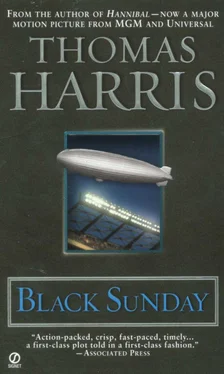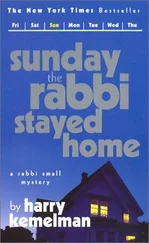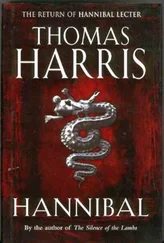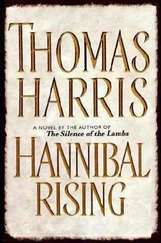“Scumbag,” said a man in a bowling jacket who stood next to Lander. “Bunch of scumbags.”
Lander laughed loudly. Several of the drinkers turned to him.
“That funny to you, Jack?”
“No. I assure you, sir, that is not funny at all. You scumbag.” Lander put money on the bar and walked out with the man shouting after him.
Lander knew no Arabs. He began to read accounts of the Arab-American groups sympathetic to the cause of the Palestinian Arabs, but the one meeting he attended in Brooklyn convinced him that Arab-American citizens’ committees were far too straight for him. They discussed subjects such as “justice” and “individual rights” and encouraged writing to congress-men. If he put out feelers there for militants, he rightly suspected, he would soon be approached by an undercover cop with a Kel transmitter strapped to his leg.
Demonstrations in Manhattan on the Palestinian question were no better. At United Nations Plaza and Union Square he found less than twenty Arab youngsters surrounded by a sea of Jews.
No, he needed a competent and greedy crook with good contacts in the Middle East. And he found one. Lander obtained the name of Benjamin Muzi from an airline pilot he knew who brought back interesting packages from the Middle East in his shaving kit and delivered them to the importer.
Muzi’s office was gloomy enough, set in the back of a shabby warehouse on Sedgwick Street in Brooklyn. Lander was shown to the office by a very large and odorous Greek, whose bald head reflected the dim overhead light as they wound through a maze of crates.
Only the office door was expensive. It was of steel with two deadbolts and a Fox lock. The mail slot was belly-high, with a hinged metal plate in the inside that could be bolted shut.
Muzi was very fat, and he grunted as he lifted a pile of invoices off a chair and motioned for Lander to sit down.
“May I offer you something? A refreshment?”
Muzi drained his bottle of Perrier water and fished a fresh bottle out of his ice chest. He dropped in two aspirin tablets and took a long swallow. “You said on the telephone that you wished to speak to me on a matter of the utmost confidence. Since you haven’t offered your name, do you have any objection to being called Hopkins?”
“None whatever.”
“Excellent. Mr. Hopkins, when people say ‘in confidence’ they generally mean contravention of the law. If that is the case here, then I will have nothing whatever to do with you—do you understand me?”
Lander removed a packet of bills from his pocket and placed it on Muzi’s desk. Muzi did not touch the money or look at it. Lander picked up the packet and started for the door.
“A moment, Mr. Hopkins.” Muzi gestured to the Greek who stepped forward and searched Lander thoroughly. The Greek looked at Muzi and shook his head.
“Sit down, please. Thank you, Salop. Wait outside.” The big man closed the door behind him.
“That’s a filthy name,” Lander said.
“Yes, but he doesn’t know it,” Muzi said, mopping his face with a handkerchief. He steepled his fingers under his chin and waited.
“I understand you are a man of wide influence,” Lander began.
“I am certainly a wide man of influence.”
“Certain advice—”
“Contrary to what you may believe, Mr. Hopkins, it is not necessary to indulge in endless Arabic circumlocutions in dealing with an Arab, especially since, for the most part, Americans lack the subtlety to make it interesting. This office is not bugged. You are not bugged. Tell me what you want.”
“I want a letter delivered to the head of the intelligence section of A1 Fatah.”
“And who might that be?”
“I don’t know. You can find out. I am told you can do nearly anything in Beirut. The letter will be sealed in several tricky ways and it must get there unopened.”
“Yes, I expect it must.” Muzi’s eyes were hooded like a turtle’s.
“You’re thinking letter bomb,” Lander said. “It’s not. You can watch me put the contents in the envelope from ten feet away. You can lick the flap, then I’ll put on the other seals.”
“I deal with men who are interested in money. People with politics often don’t pay their bills, or they kill you out of ineptitude. I don’t think—”
“Two thousand dollars now, two thousand dollars if the message gets there satisfactorily.” Lander put the money back on the desk. “Another thing, I would advise you to open a numbered bank account in the Hague.”
“To what purpose?”
“To put a lot of Libyan currency in if you should decide to retire.”
There was a prolonged silence. Finally Lander broke it.
“You have to understand that this must go to the right man the first time. It must not be handed around.”
“Since I don’t know what you want, I am working blind. Certain inquiries could be made, but even inquiry is dangerous. You are aware that Al Fatah is fragmented, contentious within itself.”
“Get it to Black September,” Lander said.
“Not for four thousand dollars.”
“How much?”
“Inquiries will be difficult and expensive and even then you can never be sure—”
“How much?”
“For eight thousand dollars, payable immediately, I would do my best.”
“Four thousand now and four thousand afterward.”
“Eight thousand now, Mr. Hopkins. Afterward I will not know you and you will never come here again.”
“Agreed.”
“I am going to Beirut in a week’s time. I do not want your letter until immediately before my departure. You can bring it here on the night of the seventh. It will be sealed in my presence. Believe me, I do not want to read what is in it.”
The letter contained Lander’s real name and address and said that he could do a great service for the Palestinian cause. He asked to meet with a representative of Black September anywhere in the Western Hemisphere. He enclosed a money order for fifteen hundred dollars to cover any expenses.
Muzi accepted the letter and the eight thousand dollars with a gravity just short of ceremony. It was one of his peculiarities that, when his price was met, he kept his word.
A week later, Lander received a picture postcard from Beirut. There was no message on it. He wondered if Muzi had opened the letter himself and gotten the name and address from it.
A third week passed. He had to fly four times out of Lakehurst. Twice in that week he thought he was being followed as he drove to the airfield, but he could not be sure. On Thursday, August 15, he flew a night-sign run over Atlantic City, flashing billboard messages from the computer-controlled panels of lights on the blimp’s great sides.
When he returned to Lakehurst and got into his car, he noticed a card stuck under the windshield wiper. Annoyed, he got out and pulled it loose, expecting an advertisement. He examined the card under the dome light. It was a chit good for a swim at Maxie’s Swim Club, near Lakehurst. On the back was written “tomorrow three p.m. flash once now for yes.”
Lander looked around him at the darkened airfield parking lot. He saw no one. He flashed his headlights once and drove home.
There are many private swimming clubs in New Jersey, well maintained and fairly expensive, and they offer a variety of ex clusionary policies. Maxie’s had a predominantly Jewish clientele, but unlike some of the club owners Maxie admitted a few blacks and Puerto Ricans if he knew them. Lander arrived at the pool at two forty-five p.m. and changed into his swimsuit in a cinder-block dressing room with puddles on the floor. The sun and the sharp smell of chlorine and the noisy children reminded him of other times, swimming at the officers’ club with Margaret and his daughters. Afterward a drink at poolside, Margaret holding the stem of her glass with fingers puckered from the water, laughing and tossing her wet hair back, knowing the young lieutenants were watching.
Читать дальше












